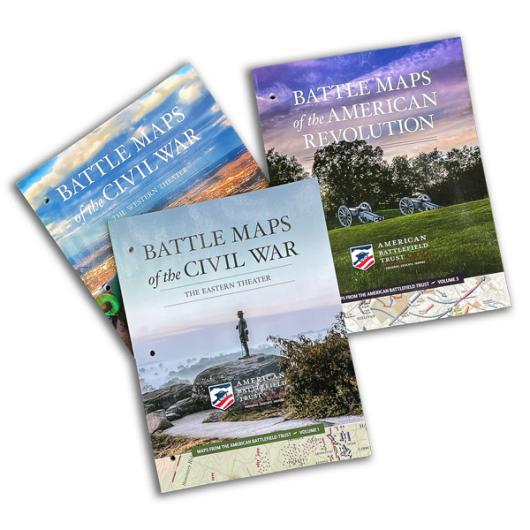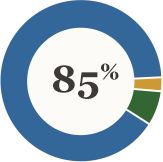Breakout & Keynote Sessions
Schedule and speaker lineup are subject to change.
Keynote Sessions:
The Whole Revolutionary War in 44 Minutes
The Revolutionary War was a wildly complex event, spanning every socioeconomic, military, cultural, and geographic cross section of the colonies, and far beyond. Just one slice of any of these subjects could occupy a lifetime of research. And yet, the massive conflagration consisted of a graspable list of truly key events, grand military movements, and questions answered. Whether you have been teaching the Revolution for decades or are new to the task, join Garry Adelman as he endeavors to cover all that is the American Revolution and bring it all together in one energetic presentation. With the nation’s 250thanniversary approaching, this is the perfect primer for pedagogists!
Session Type: Keynote Session (Monday)
Presenter: Garry Adelman, American Battlefield Trust
Subject Areas: Military History, Student Engagement
Time Periods: Revolutionary War Era
Grade Levels: All
Thomas Morris Chester: Eyewitness to the Fall of the Confederacy
Experience the life and times of African American trailblazer Thomas Morris Chester, a witness to the fall of the Southern Confederacy. The first half of the lecture will provide a biographical sketch of Chester, his education, life in Liberia, and his official training as a lawyer at one of England’s Inns of Court, the first Black American to do so. The second will be devoted to an account of his reporting from the James River Front in the dying months of the American Civil War, for the Philadelphia Press, another first for an African American.
Session Type: Keynote Session (Tuesday)
Presenter: Dr. Richard Blackett, Vanderbilt University
Subject Areas: African American History, Personalities, Student Engagement
Time Periods: Civil War Era
Grade Levels: Middle School, High School, College Level
Detours of Leadership: Lessons of Change from Dwight D. Eisenhower's Life and Legacy
Session Type: Keynote Session (Wednesday)
Presenter: Susan Eisenhower, The Eisenhower Group, Inc.
Subject Areas: Leadership, World War II History, Personalities
Time Periods: 20th Century
Grade Levels: Middle School, High School, College Level
Breakout Sessions:
Monday:
Frederick Douglass: Forming the Language of Freedom
Douglass' profound understanding of fundamental human rights was matched by a gift for communicating it in ways that reached across racial, political, and cultural divides. His gift with words was central to his effectiveness as a leader of the Abolition Movement and his continued resonance. This presentation examines the nature of his leadership qualities and the ways in which he has influenced American history through Civil Rights and beyond.
Session Type: Workshop
Presenter: Dr. Samantha Cavell, Southeastern Louisiana University
Subject Areas: African American History, Student Engagement, Critical Thinking
Time Periods: Civil War Era, Reconstruction
Grade Levels: Middle School, High School, College Level
The Power of Place: Using Maps, Images, Primary Sources & More
Placed based learning is a powerful tool. From standing in the Sunken Road in Fredericksburg to walking across the Old North Bridge at Lexington, the power of place resonates with the young and old. Today it's easier than ever to visit historic visits-in person and virtually. You don't have to be in Gettysburg to experience the power of place. The tools are at your finger tips.
Join American Battlefield Trust Deputy Director of Education Kristopher White, as he walks you through the process of creating your own in-person and virtual classroom experiences. Using maps, augmented reality, virtual reality, primary documents, pictures, and more, you'll find new and innovative ways of engaging with your students.
Session Type: Workshop
Presenter: Kristopher White, American Battlefield Trust
Subject Areas: Critical Thinking, Field Trip Resources, Place Based Learning, Primary Resources, Student Engagement, Technology in the Classroom
Time Period: Revolutionary War Era, Civil War Era, World War I, World War II
Grade Levels: All
"The Glorious and Important Event": Sir Henry Clinton an the 1780 Charleston Campaign
As the American Revolution closed out its third year, the British high command, fought to a standstill by George Washington, turned their sights to the south. After capturing and holding Savannah, Crown forces planned their next move. Their target was one of the richest cities in the colonies, Charleston. Tasked with the mission was Lt. Gen. Sir Henry Clinton, the British Commander in Chief. Clinton's first attempt to seize the city ended in a dismal failure. Not only redemption but the trajectory of the war rested on his shoulders.
Join Dan Davis, the Trust's Senior Education Manager for an examination of one of the most important campaigns of the American Revolution. We'll explore how Clinton's exercises in lessons learned, leadership and coordination in one of the greatest British victories in the War of Independence can still be applied today.
Session Type: Workshop
Presenter: Dan Davis, American Battlefield Trust
Subject Areas: Critical Thinking, Military History, Student Engagement
Time Period: Revolutionary War Era
Grade Levels: Middle School, High School, College Level
African Americans at Antietam
As the prelude to the Emancipation Proclamation, the Battle of Antietam was a turning point in African American history. Yet it has rarely been studied through African American perspectives. This program will explore the experiences of some of the 400 free and enslaved black civilians who lived on the battlefield, as well as the many black laborers who worked in the armies that met at Antietam. Through their long-neglected perspectives, a new dimension can be added to the narrative of the bloodiest day in American history.
Session Type: Workshop
Presenter: Dr. Emilie Amt, Hood College
Subject Areas: African American History, Military History
Time Period: Civil War Era
Grade Levels: All
Telling the Story of the Southern Campaign of the American Revolution: Digital Resources for the Classroom
“We fight, get beat, rise, and fight again.” The words of patriot General Nathanael Greene characterize the tenacious spirit of the patriots who fought the Revolutionary War’s Southern Campaign, a critical period brought to life like never before in the American Battlefield Trust’s digital resources and storytelling. This session will highlight the experiences of the diverse men and women whose history can be traced to multiple battlefields and historic sites, and the video, 3D artifacts, AR, VR, web pages, maps, and apps that make this complex topic accessible to students. The goal is to provide an understanding of, and appreciation for, the social, political, and military events that defined the Revolutionary period, and how to use the Trust’s resources to make the history come alive.
Session Type: Workshop/Demonstration
Presenters: Lawrence "Larry" Swiader, American Battlefield Trust
Subject Areas: Classroom Resources, Educating Educators, Student Engagement, Technology-in-the-Classroom
Time Period: Revolutionary War Era
Grade Levels: All
Tuesday:
From Masters of the Air to Gettysburg: Using Movies and Television in the Classroom
How many times have you heard from a student, parent, or colleague that their interest in history was sparked by a movie, a miniseries, or a book? With the 2024 release of Masters of the Air, literature, and television combined once again to bring a compelling story to life. Join our panel for a discussion of our favorite history movies, miniseries, and books to use with audiences of all ages. We'll go through the good (Glory), the bad (Napoleon), and the funny (Drunk History). Learn how we engage with audiences, both young and old, through these titles. And learn how you can make history relatable to the young and the old, sparking an interest in history.
Session Type: Workshop
Presenters: Dr. Chris Mackowski, St. Bonaventure University, Garry Adelman and Kristopher White, American Battlefield Trust
Subject Areas: Classroom Resources, Student Engagement, Technology in the Classroom
Time Period: Napoleonic Era, Civil War Era, World War II
Grade Levels: All
“No Quarter!”: The Capture of Fort Ticonderoga May 10, 1775
Less than a month after the Battles of Lexington and Concord, the first offensive of the American Revolution took place in May of 1775. The target was the British post of Fort Ticonderoga, far from the siege lines outside Boston. The capture of the fort by Benedict Arnold and Ethan Allen represented a new phase of the war, as well as revealing the challenges the Americans would face to win the Revolutionary War. Explore this story through the a range of artifacts, from manuscripts to fine art, to better understand the event and its implications, while exercising the skills of an historian to analyze sources. Various pieces of evidence and methodologies will be used to find the place between history, memory, and mythology.
Session Type: Workshop
Presenters: Dr. Matthew Keagle and Richard Strum, Fort Ticonderoga
Subject Areas: Material Culture/Art/Manuscripts
Time Period: American Revolution
Grade Levels: Middle School, High School
Unheralded Heroines: Women During the Civil War
With war erupting in 1861, women were faced with unimaginable challenges and opportunities that had a lasting effect on history. For many left behind at home, their roles began to change for the first time in generations. Many others decided to leave their homes as refugees or to become organizers and members in relief societies, nurses, and more. The roles women were thrown into during war made them unlikely pioneers for women’s rights. Explore women’s roles and reactions to the Civil War and how they impacted modern women’s rights.
Session Type: Workshop
Presenter: Paige Gibbons Backus, Prince William County, VA
Subject Areas: Women's History
Time Period: Civil War Era
Grade Levels: Middle School, High School
Come What May: the 1864 Election and the United States Military Telegraph
In the era increasingly high-stakes elections, many of us turn to the past, partly for guidance, and partly to reassure ourselves that things had in fact been worse and the nation was able to overcome even greater adversity. The campaign to re-elect Abraham Lincoln in 1864 would certainly qualify. Even under ordinary circumstances, re-election of a sitting president was in the mid-19th Century a near impossibility. After all, no President had won a second term since Andrew Jackson in 1832. There was no precedent for a presidential contest conducted in times of “actual armed rebellion,” amid the mounting toll of death and destruction. As Lincoln vowed to fight for a nation without slavery, his opponent George B. McClellan who promised to restore peace under “the old Constitution.” Yet on the Election Day, Lincoln won with 55% of the popular vote, securing 212 electoral votes to McClellan’s 21. Three months later, on January 31, 1865, the House of Representatives passed a resolution to amend the Constitution of the United States and to ban slavery “within the United States, or any place subject to their jurisdiction.” This virtual program will examine Lincoln’s path to the electoral victory, especially as it appears in the archives of the United States Military Telegraph.
Session Type: Breakout Session
Presenter: Dr. Olga Tsapina, Huntington Library
Subject Areas: Primary Documents, Presidential History
Time Period: Civil War Era
Grades Level(s): Middle School, High School
"Put in the Boys...May God Forgive Me": Cadets and the Civil War
Many young men who volunteered for military service during the American Civil War were under the age of 20, but some had received specific military training at military academies in the north and south. Come learn about the standing army and citizen soldier ideals behind the establishment of military academies and what the cadets at various schools did during the Civil War. Some of the featured academies and historical stories will include the United States Military Academy at West Point, the United States Naval Academy at Annapolis, Virginia Military Institute, The Citadel, Georgia Military Institute, the Louisiana State Seminary of Learning & Military Academy, and others. This workshop will include links to primary sources and resources that can be used in the classroom for considering youth, leadership decisions, and the Civil War.
Session Type: Breakout Session
Presenter: Sarah Kay Bierle
Subject Areas: Kids in History, Military History, Primary Documents, Student Engagement
Time Period: Civil War Era
Grades Level(s): All
Wednesday:
Where History and Heroism Converge: The Medal of Honor Character Development Program
Inspire your students with the stories of heroes. Join us to learn how the Medal of Honor Character Development Program employs the stories of Medal of Honor Recipients and citizen heroes to teach students about the values of courage, commitment, sacrifice, integrity, citizenship, and patriotism. The lessons focus on important moments in history and are built to engage students in collaboration, critical thinking, and personal reflection while showing them that everyone can be a hero and make a difference. This session will include everything you need to get started and show you how to access free resources including lesson plans, videos, webinars, free online training, and in-person professional development workshops.
Session Type: Workshop
Presenter: Noel Wall, Congressional Medal of Honor Society
Subject Areas: Classroom Resources, Critical Thinking, Student Engagement
Time Periods: Civil War Era,
Grade Levels: All
Primary Docs, Lesson Plans, and FREE Revolutionary War Resources...Oh My!
Come explore well-known and “forgotten” moments of the American Revolution through American Battlefield Trust’s FREE resources. See how to pick and choose resources to add to your established classroom favorites, and dive into the prepared lesson plans. Along the way, we’ll explore inquiry questions, activities, and teaching ideas...getting ready for a “revolutionary” school year with fun, confidence, and learning. The 250th anniversaries of the American Revolution are just around the corner, and we’re thrilled to feature the many resources that can bring history and inspiration into your classroom!
Session Type: Breakout Session
Presenter: Sarah Kay Bierle, American Battlefield Trust
Subject Areas: Classroom Resources, Primary Documents, Student Engagement
Time Periods: Revolutionary War Era
Grade Levels: Middle School, High School
Music and the Bonds of Community in the Civil War South
Comes listen to a broad view of popular, military, and sacred music in the Civil War South. We'll talk about minstrel shows, choral singing, shape note hymns, traditional fiddle and banjo tunes, and military bands. Along the way we'll learn about how people enjoyed music, music publishing in the Confederacy, the popularity of singing schools in the churches and how music helped create and bond communities inside and outside the army. We'll also watch and listen to some performances replicating the sounds of the 1860s!
Session Type: Breakout Session
Presenter: Dr. Daryl Black, Copie Hill Civil War Fellow at the American Battlefield Trust
Subject Areas: Historic Music, Regional Studies, 19th Century Culture, Student Engagement
Time Periods: Civil War War Era
Grade Levels: Middle School, High School
The Lay of the Land: How Topography Influenced the Way Soldiers Moved Across the Battlefield
Arrows on a map don't always explain why soldiers moved across battlefields the way they did. Often missing from those maps are the topographical features that dictated battlefield movements. In some cases, topography even controlled the battle. (That's why the American Battlefield Trust believes so strongly in preservation: we can't fully understand what happened on the battlefields unless we can see and study those landscapes.) Take some time to "read the ground" and see how a better understanding of the battlefield can give you a better understanding of the battle.
Session Type: Workshop
Presenter: Dr. Chris Mackowski, St. Bonaventure University
Subject Areas: Field Trip Resources, Military History, Place Based Learning, Primary Documents
Time Periods: Civil War Era
Grade Levels: All
Enduring Legacies: The Story of the Lincoln Memorial Shrine
Created in the midst of the Great Depression as a gift to the people of Redlands, CA, the Lincoln Memorial Shrine serves as both a place to honor Abraham Lincoln and a testament to the enduring legacy of philanthropy at its founding. Through the story of the altruism of Shrine donors, Robert and Alma Watchorn, and the generosity they inspired in others, the Lincoln Shrine offers the opportunity to bring philanthropy and history together for visitors of all ages. This program will focus on the founding family, their gift of the museum, and how their legacy of giving has resonated with generations of supporters.
Session Type: Breakout Session
Presenter: Maria Carrillo Colato, A.K. Smiley Public Library and the Lincoln Memorial Shrine in Redlands
Subject Areas: Field Trip Resources, Memory Studies, Monuments and Memorials, Presidential History
Time Periods: Civil War Era
Grade Levels: All








